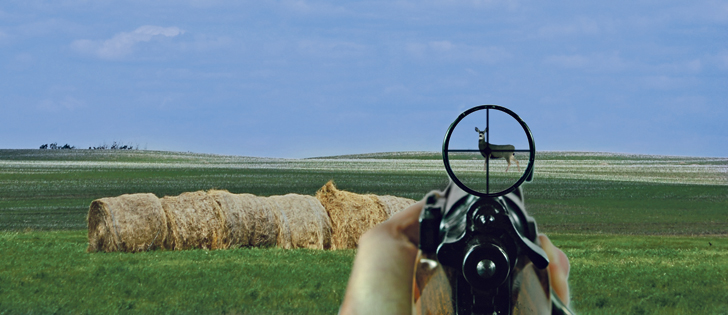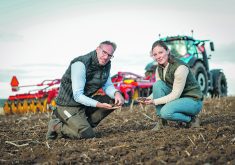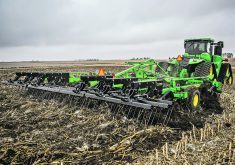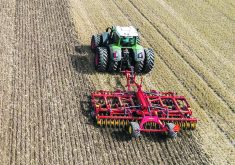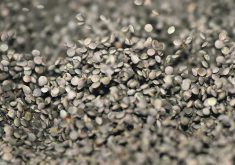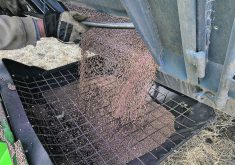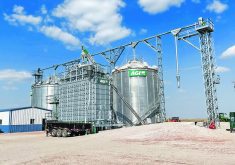Protect The Harvest, an organization that defends the right of Americans to hunt, fish and farm, likes to use provocative language on its website.
It claims that the freedoms of rural Americans are “under attack” by extremist groups, like the Humane Society of the United States (HSUS). The leaders of Protect the Harvest say the HSUS wants to eliminate traditional activities like hunting, rodeos and livestock ownership in America.
The words “right” and “fight” are also used frequently throughout its website at protecttheharvest.com.
Read Also

Crop quality looks good this year across Prairies
Crop quality looks real good this year, with the exception of durum.
“Protect The Harvest is working to protect your right to hunt, fish, farm, eat meat, and own pets,” its mission statement says.
Forrest Lucas, owner of Lucas Oil, founded Protect the Harvest in 2014 to battle groups that want to stop meat consumption, eliminate hunting and outlaw animal ownership.
The Western Producer requested an interview with a representative of Protect the Harvest, but no one was available by press time.
Protect the Harvest is unusual because it throws farming, ranching, livestock ownership, hunting and fishing under one big tent.
There probably is no comparable group in Canada, said Terry Daynard, former executive vice-president of the Ontario Corn Producers and a blogger on agricultural issues.
There have been cases where provincial governments have passed legislation that could be described as hostile to agriculture or rural activities, such as the moratorium on hog barn construction in Manitoba a decade ago and more re-cently proposals to change labour standards for farm workers in Alberta.
Those issues provoked rural anger, but farmers, fishers and hunters in Canada may not need an umbrella group like Protect the Harvest, Daynard said.
Existing farm and commodity groups can defend the interests of producers and agriculture, so another organization might be redundant.
“It’s probably better to find a mechanism to get existing organizations to work together,” Daynard said. “Maybe I’m just old, but every time (someone) talks about a new organization your eyes just roll. I think we have enough organizations now.”
When it comes to hunting and fishing, most provinces in Canada have strong groups to deal with those interests, said Greg Farrant, manager of government affairs and policy with the Ontario Federation of Anglers and Hunters.
The provincial wildlife organizations defend hunting and gun ownership to politicians and the public, but they usually employ a subtler approach than American groups, Farrant said.
“Instead of shaking our fist and say we have a right … (we say) these are activities upon which this country was founded and we have to remind them of how many people in this country still hunt, fish and trap.”
The difference in tone is partly explained by the second amendment of the U.S. Constitution, which spells out the right to bear arms. A few gun lobbyists may think Canadians have a similar right, but that’s not actually the case, Farrant said.
“Technically, there is no such protection (right to bear arms) in this country,” Farrant said.
“It’s a case of we have to argue things a different way,” Farrant said.
“We’ve become a little better and more sophisticated… in how we deliver our message.”
Instead of talking about rights, a number of wildlife groups in Canada emphasize history and the economic benefits of traditional rural activities. In other words: a softer sell to politicians and the public.
Industry estimates suggest that hunting, fishing and outfitting, including the purchase of boats, rods, guns and related equipment, contribute about $15.2 billion to Canada’s economy annually.
More subtle arguments for hunting and fishing may win a few hearts and minds, but some people will never be swayed.
As an example, People for the Ethical Treatment of Animals (PETA) have been disrupting fishing tournaments for kids in the Toronto area, Farrant said.
“Because fish feel pain and all this sort of stuff,” he said. “So we have to work with the city and recreation departments … to ensure that those tournaments continue and that the animals rights group, if you will, doesn’t win the day.”


